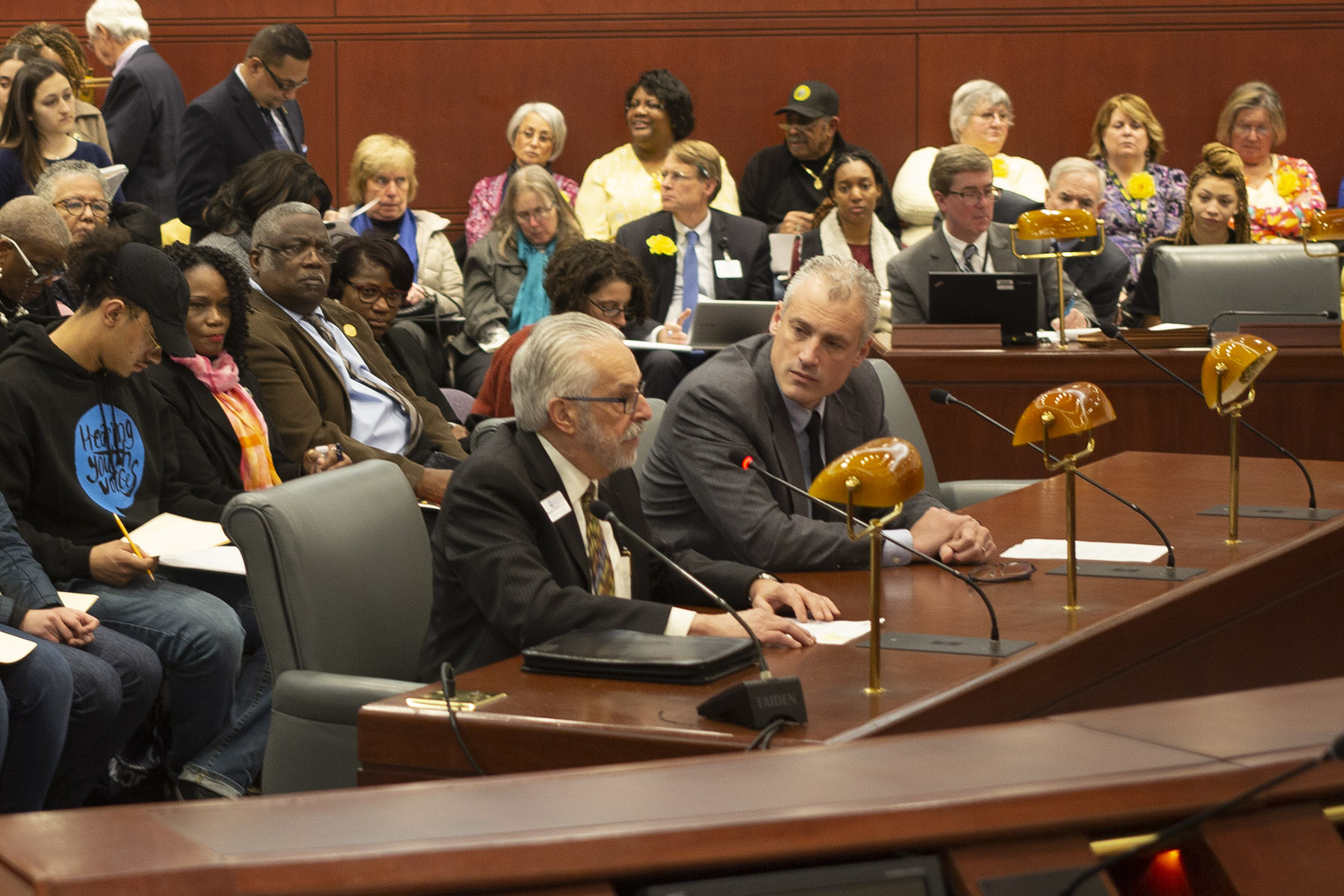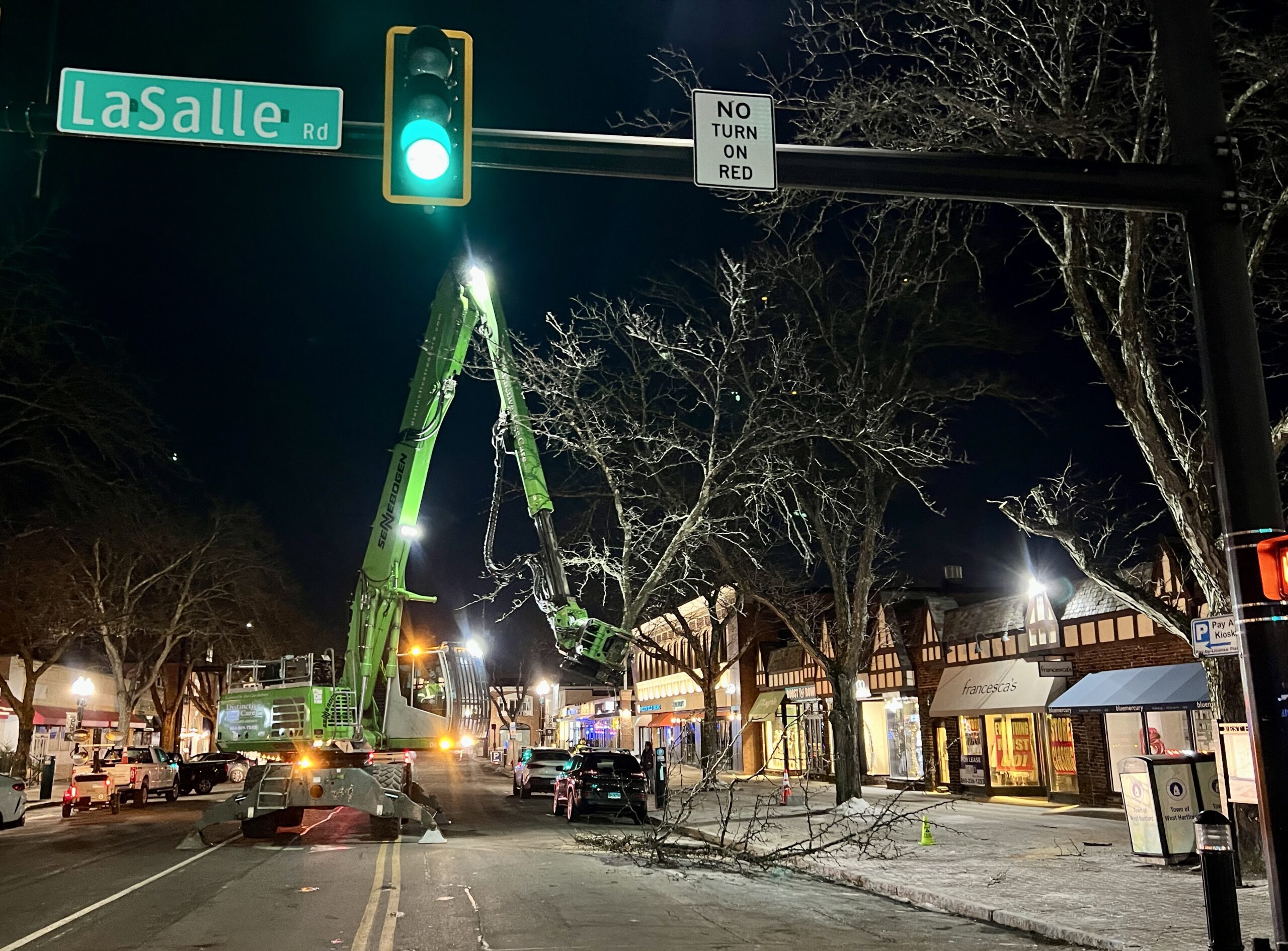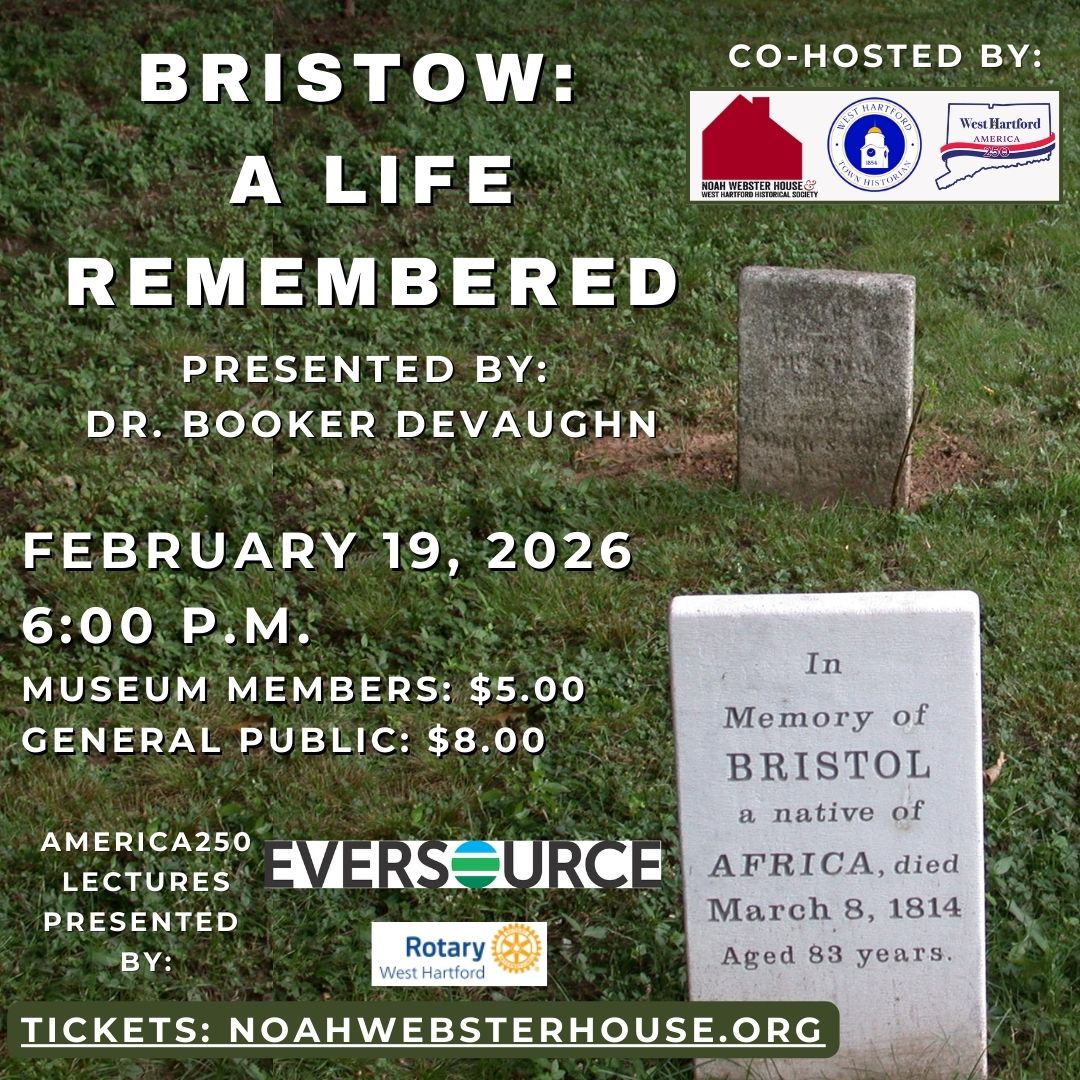State Sen. Slap and Jewish Federation Director Push for African-American Studies Bill

Audio By Carbonatix

State Senator Derek Slap (D-West Hartford, right) looks on as Howard Sovronsky, Executive Director of the Jewish Federation of Greater Hartford, testifies at a public hearing March 6 in favor of a proposed bill that would require the teaching of African-American history in the social studies curriculum of Connecticut's public schools. Courtesy photo
State Sen. Derek Slap of West Hartford and Jewish Federation of Greater Hartford Executive Director Howard Sovronsky were among those testifying Wednesday in support of requiring African-American studies in the public school curriculum
Submitted
State Sen. Derek Slap (D-West Hartford) and Howard Sovronsky, the executive director of the Jewish Federation of Greater Hartford, joined more than 100 other Connecticut residents Wednesday in support of a proposed bill that would require the teaching of African-American history in the social studies curriculum of Connecticut’s public schools.
Slap and Sovronsky spoke Wednesday at a public hearing before the legislature’s Education Committee on House Bill 7082, “AN ACT CONCERNING THE INCLUSION OF AFRICAN-AMERICAN STUDIES IN THE PUBLIC SCHOOL CURRICULUM.” The bill received 102 pieces of written support from a variety of state residents.
The bill would add African-American studies to the public school curriculum, which includes a host of other state-mandated topics such as the arts, science, math, physical education, language arts, career education, health and safety, computer programming, Holocaust and genocide studies, and other topics.
“Racial tension is an extremely complicated problem that has spurred deep conflict in our country’s history. The best way that we can study, honor, and learn from our past is by not forgetting it. We need to recognize our history and, more importantly, make sure that our children are learning about the full scope of our country’s most troubling moments,” Slap told Education Committee members.
“According to a recent study by the Southern Poverty Law Center’s Teaching Tolerance project, the African American experience in America is often ‘mistaught, mischaracterized, sanitized and sentimentalized’ in public schools all over the country. This is our opportunity to do the right thing and change these trends in our public schools. Implementing a more well-rounded curriculum about the African-American experience will give students more background on the subject and remind them that this is not a static history, but rather a fluid history that we ourselves are still creating,” Slap said.
“African-American history is America’s history that must never been minimalized. The very fabric of our country has been formed by the outstanding contributions African-Americans have made in the areas of science, technology, music, theater, education, social work, business and politics to name just a few,” Sovronsky testified. “Last session, I had the privilege of witnessing the governor sign into law a bill mandating Holocaust and genocide education. The bill before you today is just as important. It is our joint responsibility to do what is necessary to ensure that our children are given the tools they need to become engaged, productive and successful adults. Studying our shared history, learning about each other’s accomplishments and pains, only strengthens the bonds that connect us on this amazing journey we call America.”
Michael Bloom, the executive director of the Jewish Federation of Connecticut (JFACT), an advocacy organization that represents the seven Jewish federations across Connecticut, also spoke in support of the bill.
“JFACT supports this crucial legislation because at the center of JFACT are the core values of Tikkun Olam (repairing the world) and Tzedek (justice). Topics such as slavery, lynchings, voting restrictions and the Civil Rights movement must be taught in all schools,” Bloom testified, recalling an interfaith civil rights trip he recently took to Alabama to visit various civil rights sites.
“For us to move forward and be a closer society, we need to learn and discuss the past, even if it is tough. On this trip, I learned that slavery did not end, it just evolved. Our current and future students need to learn that as well. We must not forget those hanged and terrorized. We must push forward with this legislation because the struggle is not over,” said Bloom.
An Education Committee decision on the bill is expected by April 1.
Like what you see here? Click here to subscribe to We-Ha’s newsletter so you’ll always be in the know about what’s happening in West Hartford!



